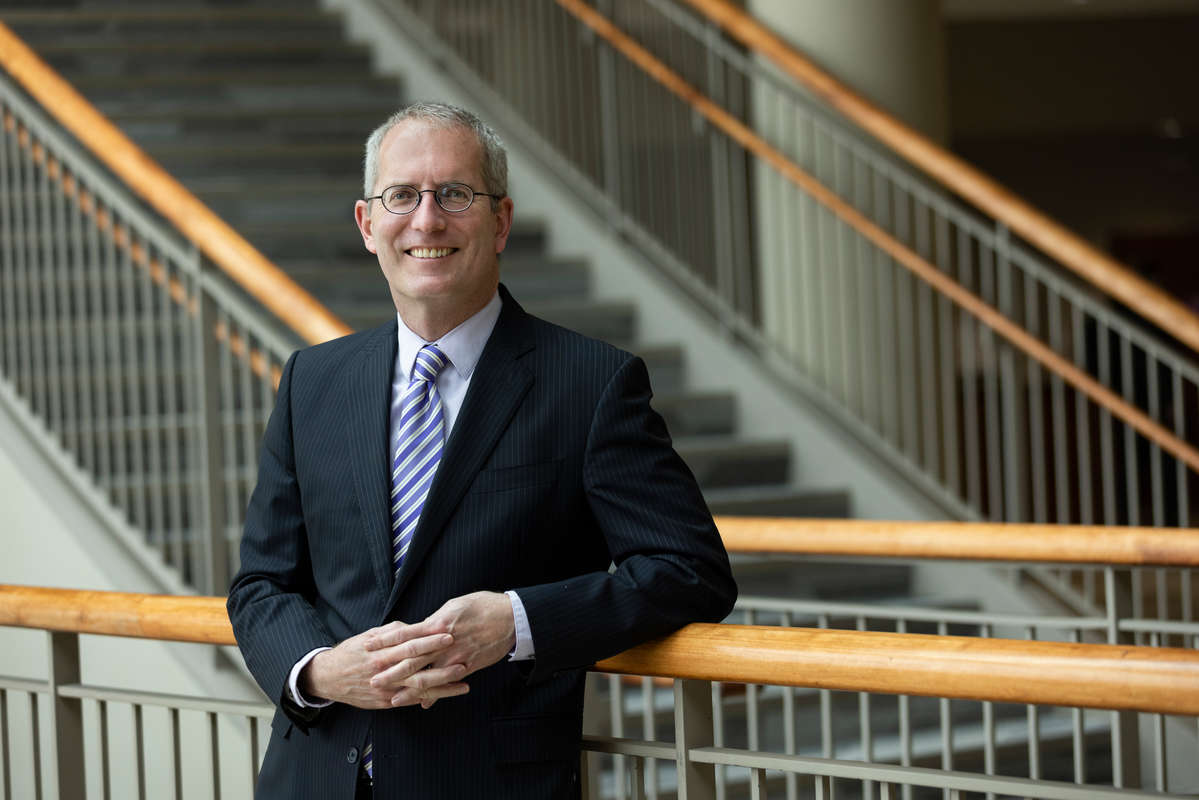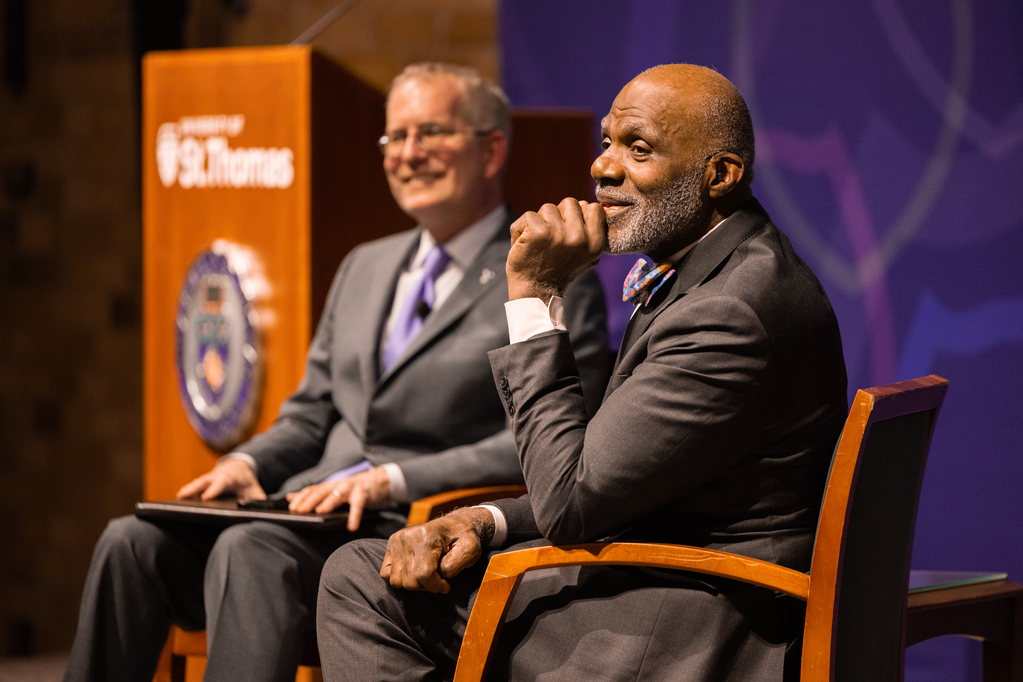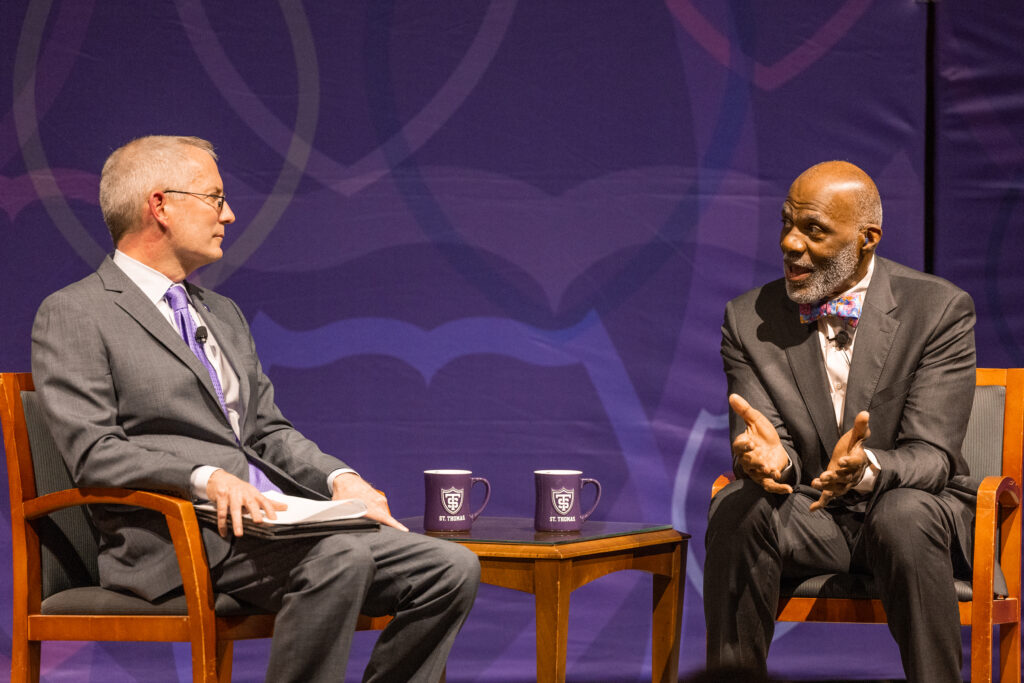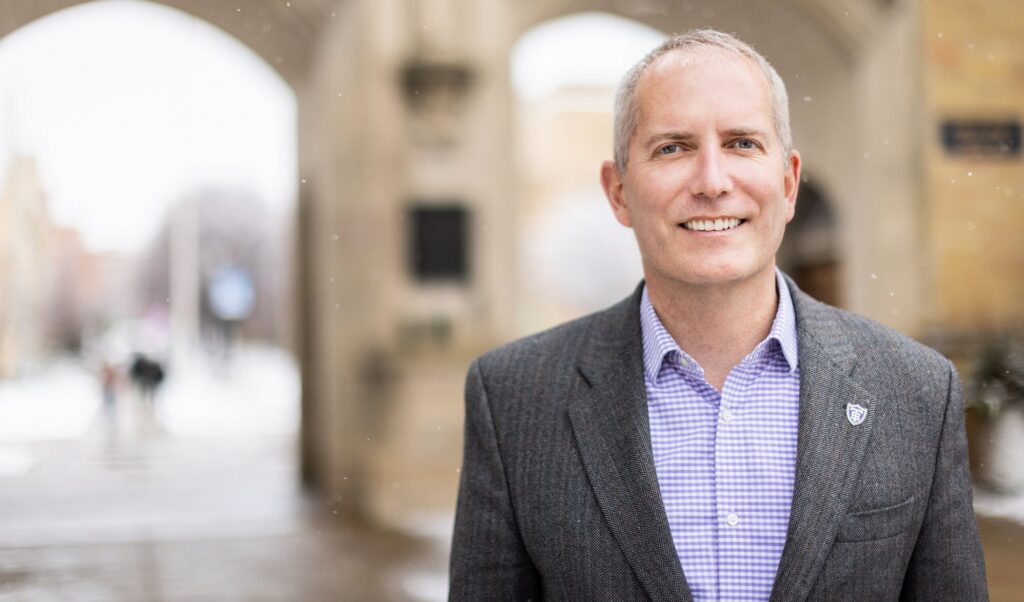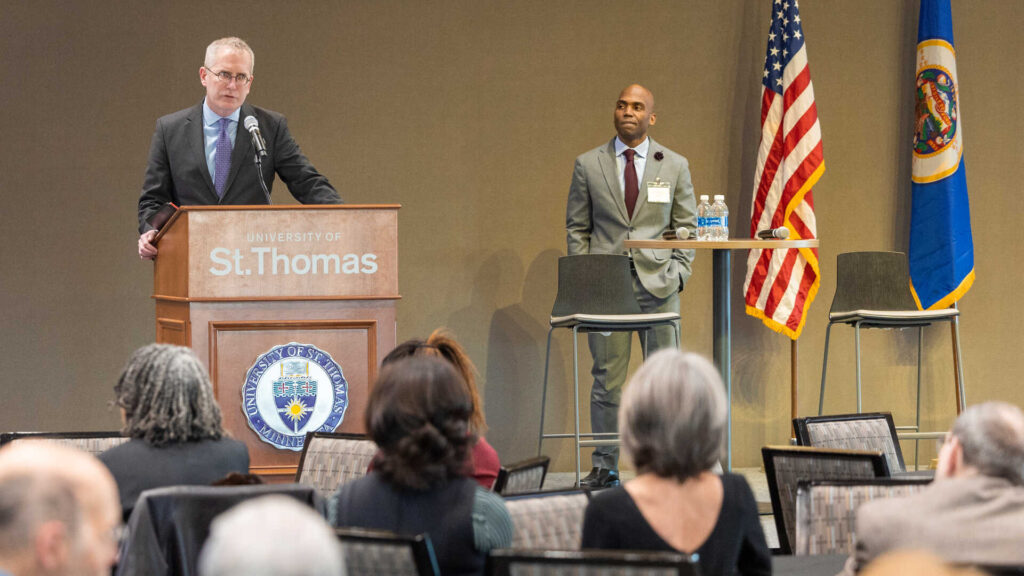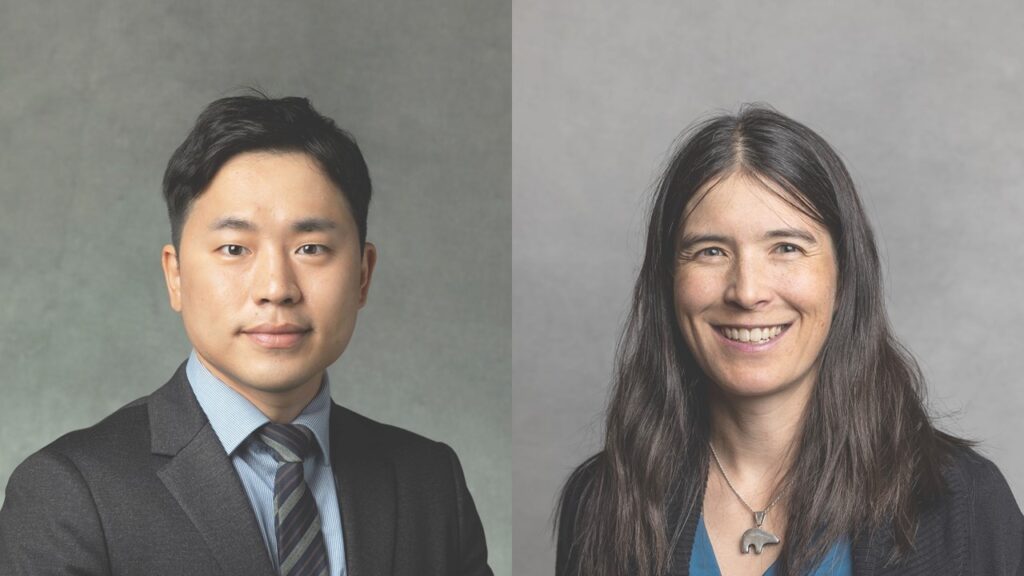The term “culture of encounter” is one we've been hearing lately, though it’s not new. Pope Francis has been using it for at least a decade. He says that society should push back against what he calls a “culture of indifference” and help build a “culture of encounter.” He explains that this is a “culture in which we find brothers and sisters, in which we can also speak with those who think differently, as well as those who hold other beliefs, who do not have the same faith.”
University of St. Thomas interim President Rob Vischer said that with a culture of encounter, “we notice, we listen, we encourage and we are present with each person we meet.” It is when “we reject a transactional approach to engaging those around us, instead aiming to build meaningful relationships.”
To better understand the call for members of the University of St. Thomas community to engage in a culture of encounter, Lorena Armstrong-Duarte, the communications and constituent relations manager in the Office of the President, sat down with Vischer to ask him a few questions that further explain this concept. Here’s the result of their conversation.
“Culture of encounter” can sound like an abstract idea or theory; can you share an example or two of what the culture of encounter looks like in action?
As we’re just emerging from another election season, I’ll use that as an example. One dimension of the challenge before us was highlighted by a recent Pew survey, which found that the majority of Republicans say Democrats are more immoral, more dishonest, and less intelligent than other Americans; the majority of Democrats say the same thing about Republicans. This was not the case as recently as 2016. When we build relationships with those who disagree with us politically, we’re resisting the temptation to define our opponents as the “other” who lie beyond our care and concern. We are encountering them as real people, worthy of our attention and respect.
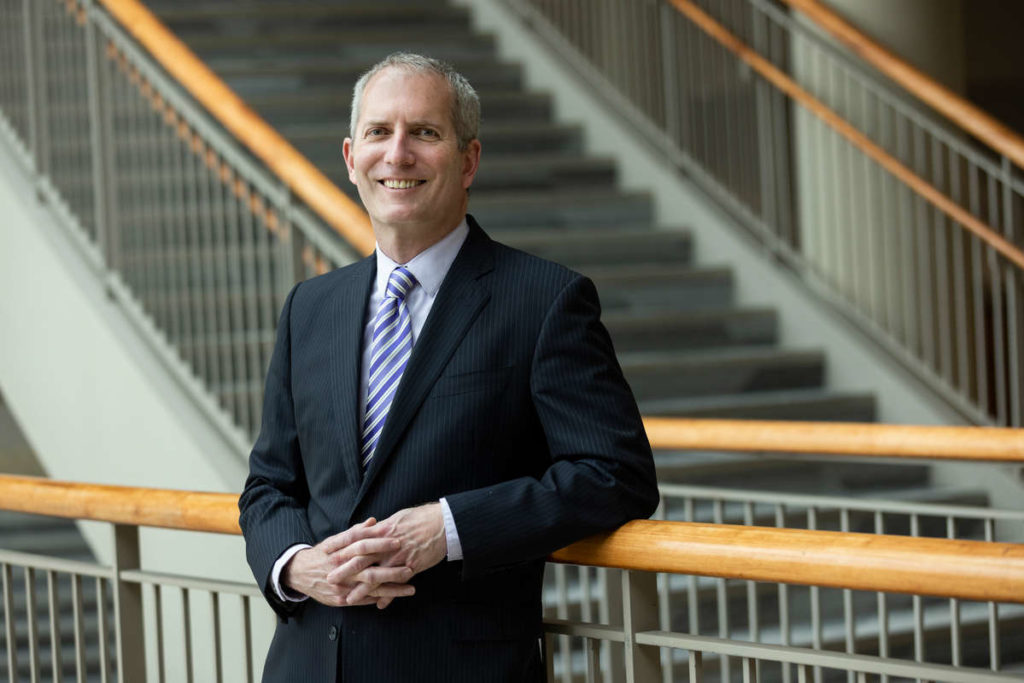
Why is this a priority for you, personally?
I can look back on my life and identify specific times when someone took the initiative to be present in my life, to come alongside me in a difficult moment. And when I’ve experienced a strong sense of belonging in a new environment, it’s been the result of others’ intentional and proactive engagement with me. Just as I can look back across my life and identify times when I experienced God’s love through the care shown by others, I want our students and colleagues to be imprinted with such memories that can help sustain them for decades to come.
Why is it important now for this to be a priority for the University of St. Thomas?
Our culture is the most powerful driver of our success. Today young people aged 18 to 22 are the loneliest generation in America – lonelier than senior citizens. More than ever, our students need to experience a powerful and authentic sense of belonging. We must equip and encourage each other to be fully present and responsive to each person with whom we interact, and to show through our words and actions that they matter, that we’re glad they’re here. At St. Thomas, we don’t just offer knowledge; we offer a meaningful and potentially life-changing experience of community.
How have you seen the culture of encounter playing out on campus? Where/how do you see the culture of encounter at St. Thomas?
There are too many examples to name because I see it happening every day. I’ll share one story. One evening I was working late and the night shift custodian, Jésus, stopped by to introduce himself. He told me about a student he had just met who was studying for an exam the next day and feeling anxious. Jésus encouraged her and told her he would pray for her. A few days later, Jésus stopped me as I was walking to my car and told me that the student had done well on her test and was proud of her performance. I’m sure that his own smile was as broad as the student’s. That’s the culture of encounter.
What signs would you look for to know that a culture of encounter has been effectively and successfully embraced by the St. Thomas community?
For some within the St. Thomas community, the culture of encounter will not require us to do things we haven’t already been doing; rather, it asks us to be more self-aware about why we’re doing what we’re doing. It’s a concept that beautifully articulates the “why” that underlies our day-to-day work. Key measures of our success, for example, include our climate survey results and the reasons students cite for leaving St. Thomas before finishing their degrees. Also, how many relationships do our students build with faculty and staff? A recent nationwide survey of college graduates showed that, if a student forms significant relationships with seven or more faculty or staff members, they are three times more likely to say that their college experience was “very rewarding.” Can we ensure that every St. Thomas student has the opportunity to get to seven? I believe that would be a strong indicator of success.
Related Content

